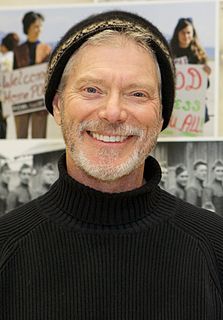A Quote by Billy Crudup
Interest in certain themes doesn't mandate a personal stake or personal experience of those themes. I've killed people in plays, but no one asks me what it's like to kill people.
Related Quotes
If somebody asks me about the themes of something I'm working on, I never have any idea what the themes are. . . . Somebody tells me the themes later. I sort of try to avoid developing themes. I want to just keep it a little bit more abstract. But then, what ends up happening is, they say, 'Well, I see a lot here that you did before, and it's connected to this other movie you did,' and . . . that almost seems like something I don't quite choose. It chooses me.
We learnt a lot because we got in with real choreographers who tell you what they need from a song, because a song has to advance the story. Then real directors like Mike Nichols tell you where you can have 'B themes' and 'C themes', and we go oh yes, B themes and C themes! So we were taught in the finest school amongst the finest people. And also by the school of experience.
If we are willing to act violently in pursuit of a peripheral interest, everyone can be certain that, when a vital interest is at stake, we will be still more violent. 'Credibility' is defined as the willingness to kill a lot of people now for a not very good cause to assure the world that we'll kill a lot more people if we can find a better one.
I never really approach any project or story thinking of themes first or what a certain character 'represents.' Maybe other writers do, but for me, it just starts with the characters and a certain emotion I want to convey. It usually isn't until I get deeper into a book and look back a bit that I start to see the themes, etc.
One of the many, many things I hate about war is how it trivializes the personal. The big themes, the broad sweep, the emergency measures, the national identity, all the things that a particular kind of man with a particular kind of power urge adores, these are the things that become important. War gives the lie to the personal, drowns it in meetings, alarms, sacrifices. The personal is only allowed to return as death.




































